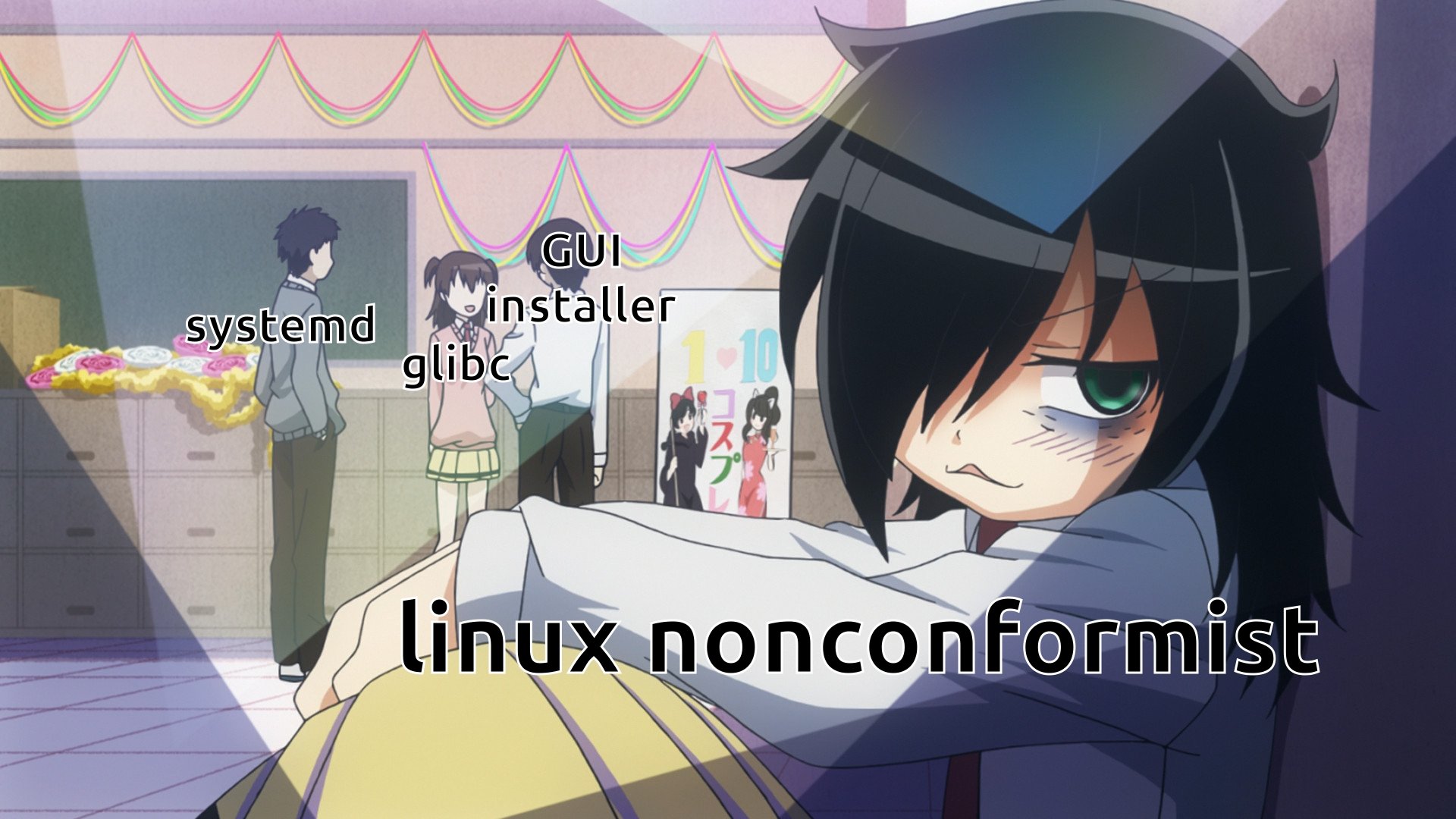337
you are viewing a single comment's thread
view the rest of the comments
view the rest of the comments
this post was submitted on 01 Apr 2024
337 points (100.0% liked)
linuxmemes
28711 readers
971 users here now
Hint: :q!
Sister communities:
Community rules (click to expand)
1. Follow the site-wide rules
- Instance-wide TOS: https://legal.lemmy.world/tos/
- Lemmy code of conduct: https://join-lemmy.org/docs/code_of_conduct.html
2. Be civil
- Understand the difference between a joke and an insult.
- Do not harrass or attack users for any reason. This includes using blanket terms, like "every user of thing".
- Don't get baited into back-and-forth insults. We are not animals.
- Leave remarks of "peasantry" to the PCMR community. If you dislike an OS/service/application, attack the thing you dislike, not the individuals who use it. Some people may not have a choice.
- Bigotry will not be tolerated.
3. Post Linux-related content
- Including Unix and BSD.
- Non-Linux content is acceptable as long as it makes a reference to Linux. For example, the poorly made mockery of
sudoin Windows. - No porn, no politics, no trolling or ragebaiting.
- Don't come looking for advice, this is not the right community.
4. No recent reposts
- Everybody uses Arch btw, can't quit Vim, <loves/tolerates/hates> systemd, and wants to interject for a moment. You can stop now.
5. 🇬🇧 Language/язык/Sprache
- This is primarily an English-speaking community. 🇬🇧🇦🇺🇺🇸
- Comments written in other languages are allowed.
- The substance of a post should be comprehensible for people who only speak English.
- Titles and post bodies written in other languages will be allowed, but only as long as the above rule is observed.
6. (NEW!) Regarding public figures
We all have our opinions, and certain public figures can be divisive. Keep in mind that this is a community for memes and light-hearted fun, not for airing grievances or leveling accusations. - Keep discussions polite and free of disparagement.
- We are never in possession of all of the facts. Defamatory comments will not be tolerated.
- Discussions that get too heated will be locked and offending comments removed.
Please report posts and comments that break these rules!
Important: never execute code or follow advice that you don't understand or can't verify, especially here. The word of the day is credibility. This is a meme community -- even the most helpful comments might just be shitposts that can damage your system. Be aware, be smart, don't remove France.
founded 2 years ago
MODERATORS

More Code in Kernel-space = less secure
Systemd = a lot of Code in Kernel-space
There's no kernel-space code in systemd.
Right, sorry, i just watched a documentary about anti-cheat.
But it still runs with elevated peivileges, which i don't really like
So does sysvinit. PID 1 has to be root to do its job. Under sysvinit it is the responsibility of each daemon to drop privileges on their own if they wish to do so.
Systemd can handle your services such that they start unprivileged from the get go. It also offers a lot of isolation by default with options like PrivateTmp, ProtectHome, ProtectSystem powered by cgroups. It can effectively run your services like they're in a Docker container if you want.
A lot of systemd also runs as separate services with their own user as well. Only the core init part really runs as root, it prefers to drop privilges and apply cgroup isolation wherever it makes sense to do so. The logger for example runs as systemd-journald, the DNS resolver runs as systemd-resolved. They're part of the systemd package but far from all of it runs as root. Systemd can even do certain privileged operations so that the service can run with less privileges such as binding port 80/443 for you so the web server doesn't need root at all to run.
It also enables users to do certain operations without requiring elevating privileges with sudo, which in many cases can help not have to give sudo NOPASSWD specific commands because your web developers need to be able to restart the web server, you can just add a Polkit rule that allows restarting that service without privileges. Systemd is all D-Bus, so you can control access at a very granular level. You can grant only start and reload if you want.
Sysvinit is just shell scripts running as root. There is no security whatsoever, it was never sysvinit's job to secure the system. It's mostly fine as all the tooling for it also requires root to use. But it does require root 100% of the time to interact with it.
There's good reasons to prefer sysvinit, those are just common FUD systemd haters keep spreading. There's no need to discredit or outright lie about systemd to justify preferring sysvinit: the simplicity of a few shell scripts and not needing 99% of what systemd does is a perfectly valid argument on its own.
I have boxes that use systemd very heavily and some that have a custom bash script as the init because the box only needs an IP and to start a single app. Right tool for the right job and stuff.
Right, same problem with the desktop "OS Wars", I just don't see the point. Personally, on any given day, I'm switching between all 3 major OS's
eBPF: psst, wanna run your code directly in kernel?